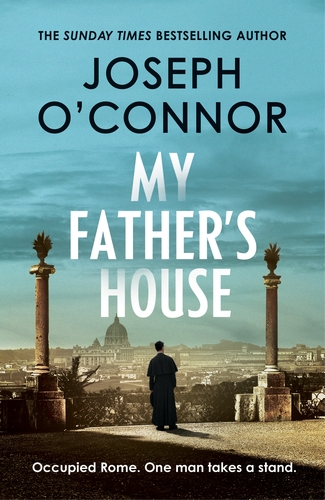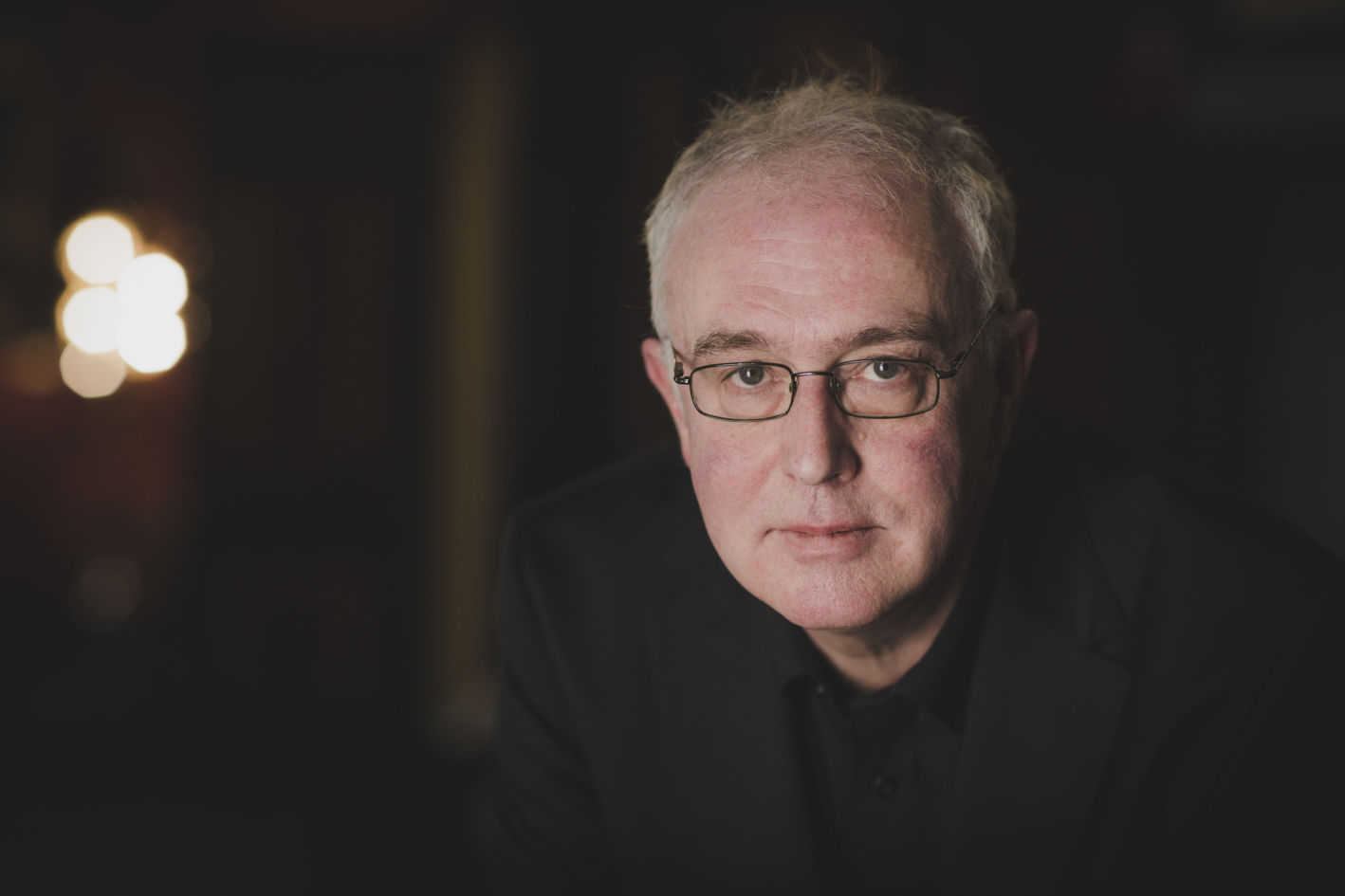
My Father's House is the tenth novel of the author
Sitting by a window overlooking a “beautiful mews street” in Chelsea, one of the most affluent areas of London, Joseph O’Connor is in great form. Perhaps, this is due to the raving reviews his latest book, My Father’s House, has been receiving.
“Like all authors, you pretend that you don’t care about reviews. F**k the reviewers, who cares what the reviewers think? But then, you get a nice one and suddenly, they’re very insightful people,” he laughs.
This week, the Dubliner is strolling around London with his wife to sign copies of what has quickly become a number one read, and to launch his book at the Irish Embassy. Not so long ago, he was congratulating new graduates at the University of Limerick’s conferring ceremonies.
Speaking of caps and gowns, he notes: “It’s quite colourful, isn’t it? It’s like a flock of birds.” The author was particularly in awe of Irish archivist, Dr Anthony Malcomson, who was conferred with an Honorary Doctorate of Letters.
“I think that when Michael D Higgins is finished as President of Ireland, we should just get together and give the presidency to that man.”
The last time he spoke to the Limerick Leader, Joseph was getting ready to spend Christmas in the Eternal City with his wife, screenwriter Anne-Marie Casey, and their sons, James and Marcus.
It’s no secret the author has an eternal love for the capital of Italy. Set in Rome, his 10th novel tells the true story of Monsignor Hugh O’Flaherty, a Kerry priest who risked his life to save thousands of others during World War II.

Run-up to Christmas 1943: German forces occupy Rome, hunger is widespread and rumours fester. Led by a courageous Irish priest, a small band of unlikely friends want to help those seeking refuge in the Vatican City. On Christmas Eve, there’s one goal: smuggle Jews and escaped Allied prisoners out of the country, right under the nose of the Nazis. To conduct this mission, the priest uses his Choir as a disguise.
Through an ensemble piece, O’Connor paints a vivid picture of the Eternal City while changing the standpoint at various times, giving My Father's House a page turning quality. From an array of colourful characters to a built-up tension that keeps the reader gripped, the author orchestrates quite the literary thriller. With his usual flawless prose, O’Connor celebrates accents, slangs and different modes of speech - and at times, you can almost hear his characters’ voices.
Speaking of prose, Joseph refers to Adam’s Curse, a poem by Yeats, which emphasises the value of Sprezzatura – an Italian word used to describe the ability to accomplish difficult actions, while making it seem like a walk in the park.
“It’s the art of making something that is difficult look easy,” starts Joseph. “And, I suppose, it’s all good writers have to aspire to. The Italians, of course, see it as a life skill.”
O’Flaherty had been in Joseph’s mind for quite some time – and four years ago, the priest knocked on his window to say “time to write a novel about me, mate.” During one of his trips to Listowel Writers’ week in Kerry, he heard this story for the first time.
“I heard of Hugh probably 20 years ago late one night in the bar of the Listowel Arms Hotel, as somebody told me about this remarkable man from Kerry who had lived in Rome during the Second World War, and who put himself at great personal risk to rescue fugitives from the Nazis.”
He compares the priest to the likes of Elvis and Mick Jagger. “He was Rock 'n' Roll. An old school, rule breaking, idealistic, passionate person who was not able to live by the dictates of other people.” A rebellion touch, which according to Joseph, is a very Munster thing. “It’s that Munster stubbornness,” he smiles.
As he wrote My Father’s House during the lockdown, he remembers how nice it was to escape to Rome every day.
“For my own mental health and equilibrium, it was nice to sit down at my kitchen table every day and go to Rome for a couple of hours,” he says. “I’m very grateful to Hugh for coming along and insisting that it was time for his novel.”
When he was younger, the Dubliner thought the world would have changed by now. That’s part of why he wanted to tell O’Flaherty’s story. The state of the world, war, racism, sectarianism – he cites all those things he thought would’ve disappeared.
“The election of Trump, who always reminded me of Mussolini in the way he conducted himself, the division of people, the very harsh language from politicians - emphasising not what we have in common, but what separates us,” he regrets.

Like no other, Joseph O’Connor masters the art of historical fiction. What is his research process like?
“When I’m writing about a character inspired by a historical person, I read every first-person narrative that I can find - and that’s my filter,” he explains. “You have to be careful when writing a novel, that it doesn’t become too full of facts.”
The author has a great motto – one he learned from The Smiths. “The music that they constantly play, it says nothing about my life,” he recites.
For My Father’s House, he went through a fairly large collection of Flaherty’s writings – which he accessed thanks to the priest’s family. “Letters, telegrams, notes – they allowed me to read those and take copies,” he explains.
However, Joseph is keen to stress My Father’s House is a novel, and not a work of history – something he also mentions at the end of the book.
According to the writer, historical fiction is about respecting the facts and the realities of the characters – and keeping your own views aside.
“One of the challenges for me was that Hugh is an ordained Roman Catholic priest, I assume his world view was defined and enriched by that. I don’t judge that, and my own views on those things are irrelevant.”
While writing the novel, he didn’t enjoy the mornings he had to spend with Paul Hauptman - a character based on the real Gestapo Commander of Rome, whose name Joseph refuses to say.
“I changed his name because I physically didn’t want to have to type the letters of his name. I don’t think he deserves to be remembered, and I don’t want to make any false equation between himself and Hugh”, he comments.
With 10 novels, 2 collections of short stories, as well as several plays, O’Connor has touched on many topics. But, is there something he would never write about?
“I’m sure there must be, we all must have our limits. I’ve written about famine, war, terrorism, Nazis. As my wife says: boy, do you do all the cheerful subjects,” he chuckles.
A prolific writer, Joseph doesn’t like to sit around and wait for inspiration. That’s why, at the back of his mind, he has a long list of “possible people” to write a novel about.
Quite the queue is forming as he mentions he’d like to write a novel about Grace Gifford, as well as “one of the truly punk bands”, X-Ray Spex.
In the meantime, the author will keep busy working on two other books for a trilogy, of which My Father’s House is the first instalment. “A nice piece of news that has arisen is that an offer has come for the movie rights,” he concludes.
Perhaps, another trip to Rome might be in the books. Plus, rumour has it, after two glasses of red wine, Joseph “speaks Italian with great fluency.”
Subscribe or register today to discover more from DonegalLive.ie
Buy the e-paper of the Donegal Democrat, Donegal People's Press, Donegal Post and Inish Times here for instant access to Donegal's premier news titles.
Keep up with the latest news from Donegal with our daily newsletter featuring the most important stories of the day delivered to your inbox every evening at 5pm.